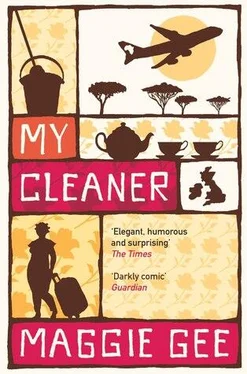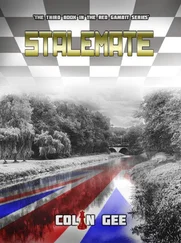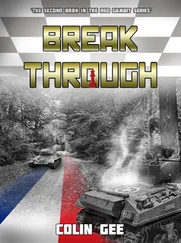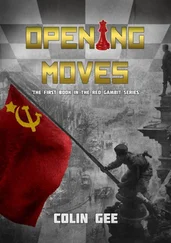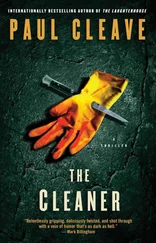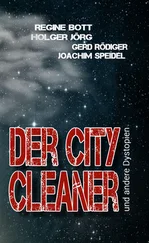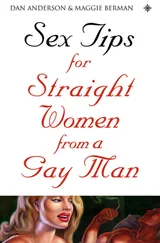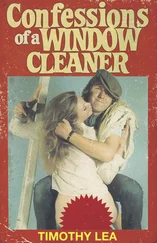But Mary need never see this letter, Vanessa thinks, crumpling it. No, Mary never will see this letter.
Then she uncrumples it, and reads it again.
On the other hand, Emily Self could be big. “The father in the hen-house is wonderfully sinister” (even though Vanessa thought she’d made him touching). “I really do think I could do something with her.”
That means, she must believe she can make me famous.
I am always said to be photogenic. So that’s one less thing to worry about.
Vanessa needs time to take it all in. For a while she cannot bear to look at Mary. The thing she has done is so dishonest. Passing herself off as one of my students! Taking advantage of my trust!
Mary, for her part, has no idea why Vanessa has started glaring again. But Mary feels guilty about having seen the grandchild, so she is submissive, and tries to placate her. It should be Vanessa who is holding the baby, Vanessa, in Mary’s place, gazing down on his quick brown eyes and long tear-slicked lashes, watching him kick like a little pink frog. Vanessa, who doted on frogs in the garden. Though she hadn’t always been good with young children—
But no, Vanessa would love this baby. Mary feels bad for her about the baby, but Justin is stubborn as a mule.
Then, the night before they are all supposed to be leaving for the country, Justin tells Vanessa he isn’t going. “I’ll have to come up later, on my own. There’s stuff I have to finish, Mother.” Vanessa questions him very closely, but all she can establish is that somewhere or other, a young couple need alterations for their new baby, or else they will not get in for Christmas. Justin’s enigmatic: “Like, no room at the inn.” She wonders yet again if he is on something: he seems so giggly, so absurdly happy, yet at the same time he has a sleepy look, though he’s up every morning and out of the house. His bedridden days seem to have gone for ever.
“But darling, you can’t get to Lucy’s on your own.” Because since his breakdown, Justin has not driven. Despite all Tigger’s attempt to encourage him—“Come on lad, you’re a bloody good driver. You passed first time, which is more than I did”—despite Tigger’s pleas that he needs help with the van, Justin’s still afraid of the driver’s seat. “I can’t do it, Dad. I might kill someone.”
And so it is arranged he will follow with Mary, who will drive Justin’s superannuated Jaguar, if it will move, after six months in the garage. Mary likes the idea, and spends a happy afternoon getting it purring over again; she turns out to be a competent mechanic. Vanessa will drive up tomorrow as planned: Justin and Mary, two days later. “And Mary, for God’s sake, don’t forget your glasses!” Vanessa sounds as sharp as before the attack.
Vanessa leaves in the morning, waving manfully, and yet she has a mournful, anxious look. Mary and Justin feel touched and guilty, seeing Vanessa’s small stiff figure manoeuvring herself into the driver’s seat, with two suitcases of what she calls ‘essentials’, plus bags of food, clinking bottles, rolls of wrapping paper, carrier bags of presents, a holly wreath, and a great hollow box of crackers, shining with cellophane, a cube of decorated air, two dozen titivations of crepe and gold paper in which a few paltry plastic giftlets rattle. She is so small compared to the bulk of her possessions. They wave to her as she shrinks down the road.
“So when will you tell her that she is a grandma? Of the most beautiful baby in the world?” Mary asks Justin, hugging him. “Poor Miss Vanessa, I am sorry for her.” It tempers the faint pleasure of outwitting her employer (but the baby, in himself, is so glorious: pinkish-skinned, though it will darken later, red-lipped, stormy, but easily comforted, topped with a shock of straight dark hair).
“I’m going to tell her. All in good time. Once we’re sorted out, I shall bring them both to see her.”
The next day, the weather’s sharply colder. There are alerts of imminent snow. The bookies taking bets on a White Christmas close their books, and exhausted housewives fight back into the shops to buy more thick soups, more Christmas puddings. Now all the furry hot-water bottles have sold out. There is a miniature run on bedsocks.
Vanessa, in Sussex, starts to worry. “If it gets any worse, you are not to come,” she instructs Justin, when she gets him on the phone, though for the past two days he has hardly been at home. “Mary is not to drive if it’s snowing. She isn’t used to snow. She’s African.”
“Oh, Mary and I aren’t frightened by snowstorms,” says Justin, grandly. Yet it keeps getting colder. Zakira has the baby in a soft cocoon of blankets. He and Mary shiver as they pack the car. He does not want to leave his woman, his baby, but he still can’t say so to his mother. Will he ever learn to say ‘No’ to her? One day, he thinks, I shall just be myself.
But it isn’t so easy to be himself. Maybe having a family of his own will help; a new family, to escape the old one.
They had firmly intended to leave before dark, but Justin receives a call from Zakira: her nipples are hurting; she needs something from the chemist. With a stricken expression — she must not be in pain — he shoots out of the house before Mary can take him and does a tour on foot around the three local chemists, who sell him half a dozen useless remedies, and then Mary drives him to Zakira’s. It isn’t easy to leave his new family; Zakira seems fretful, almost reproachful, so by the time they are really on the road, it is sunset.
The air is full of Christmas petrol: it has a poisoned, leaden feel. The sunset is magnificent but also lowering, red flames shooting between mountainous clouds which are the brownish purple that presages snow.
As they turn out of their street, the white dance begins, first big light flakes, individual as flowers, and then slowly quickening, multiplying, twisting, till within thirty minutes their car has been sucked into a sifting forest of grey-white shapes, as soft and thick as if cut from flannel, which burst into brightness at every street lamp, then fade again, instantly, whiten then darken, so everything looks different, hides and shifts, and the solid stream of traffic melts and blurs into a series of whispering spectres, and deepening the white is the indigo evening as night blues over the afterglow.
“Your mother said I shouldn’t drive if it was snowing, but it didn’t snow till we had already left,” says Mary, smiling, but she isn’t quite happy, though Mary believes in being happy.
Firstly, her glasses, though nearly new, bought from a friend who no longer wanted them, keep steaming up, and pinch her nose. She has to take them off and wipe them, and on one occasion, nearly loses control, and Justin reaches across to grab the wheel. “Be careful, Mary,” he says, crossly, sounding suddenly unpleasantly like Vanessa.
Secondly, Mary had forgotten snow. Her memory had turned it into something minor, something sweet and flat and docile, like icing. She is taken aback that it is eating the world, surging up all round her, in four dimensions.
Thirdly, her kabito hasn’t called. Four weeks ago, he telephoned to tell her he was coming, he had the tickets and was ‘sure of a visa’, but since Ugandans don’t believe in a visa until it is in their jacket pockets, he promised to call again to confirm; but the second phone-call has never come, and she’s been unable to track him down.
So Mary is doomed to spend Christmas with strangers, in a village a world away from her own village, far from her church and her friends in Kampala, away from her beloved friend the accountant, who grows more dear now she isn’t going to see him. She misses him badly, longs for him. For the first time she thinks, “I might marry Charles.” But she cannot marry him until she locates him. Will she ever see him, or Uganda, again?
Читать дальше
